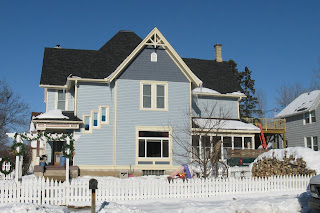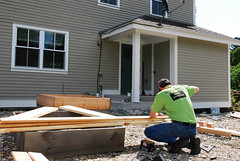 This blog is part of our 35th
Anniversary Celebration series, highlighting NeighborWorks affiliates which are
celebrating milestone years marking either their membership in the network or
their incorporation as an organization. This month, NHSGC is celebrating 15 years since incorporation.
This blog is part of our 35th
Anniversary Celebration series, highlighting NeighborWorks affiliates which are
celebrating milestone years marking either their membership in the network or
their incorporation as an organization. This month, NHSGC is celebrating 15 years since incorporation.  |
| By Brittany Hutson, NeighborWorks America Public Relations fellow |
The 2008 housing crisis caused many to wonder if buying a home could still be considered the "American dream." In spite of all the uncertainty about the housing market, Neighborhood Housing Services of Greater Cleveland, Inc. (NHSGC) has remained steadfast in its mission to assist their clients in becoming homeowners. “A lot of people will say Cleveland and Slavic Village was the epicenter of foreclosure, mortgage fraud, flipping, etc.,” says Executive Director Lou Tisler. “But it was also the epicenter for solution based programs for the foreclosure crisis.”
Tisler says that the foreclosure crisis gave NHSGC an opportunity to prove their value and leadership and that the crisis required the organization to be more flexible and creative. The organization was selected for the Ohio Foreclosure Prevention Task Force, accumulated nearly $5.6 million to assist people in need with the NeighborWorks Collaborative of Ohio, and provided testimony at congressional hearings.
 |
| Dave Wilson came to NHSGC to avoid foreclosure. He had suffered an injury and struggled to make ends meet. By working with NHSGC, Wilson was able to get an affordable loan modification. |
In addition to the staff, Tisler says that being a part of the NeighborWorks network is “an incredible, valuable asset for the organization and the people we serve.” He adds, “As a network member, NHSGC has access to best practices and funding, and can share experiences and ideas with other network organizations. It is truly a network of excellence.”
















